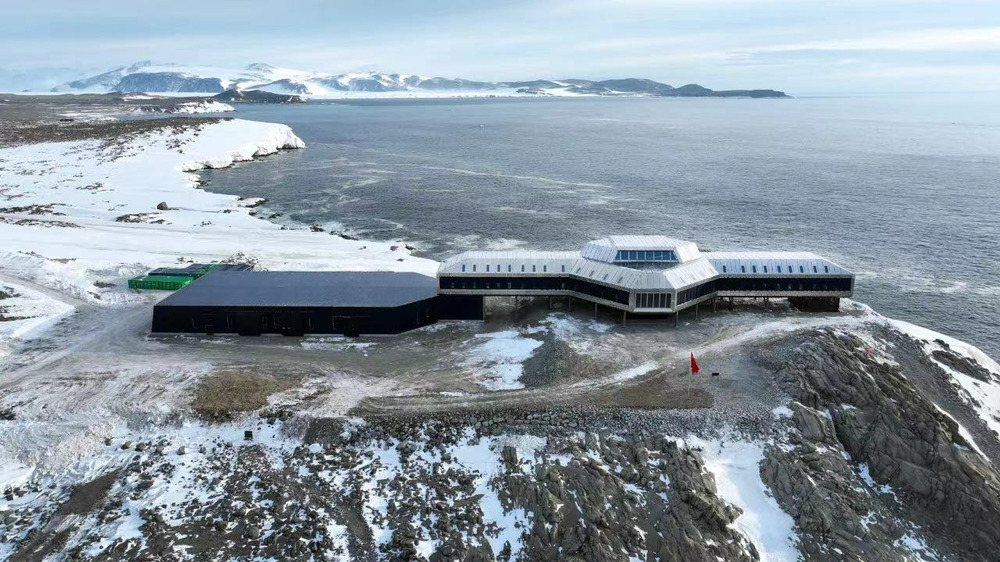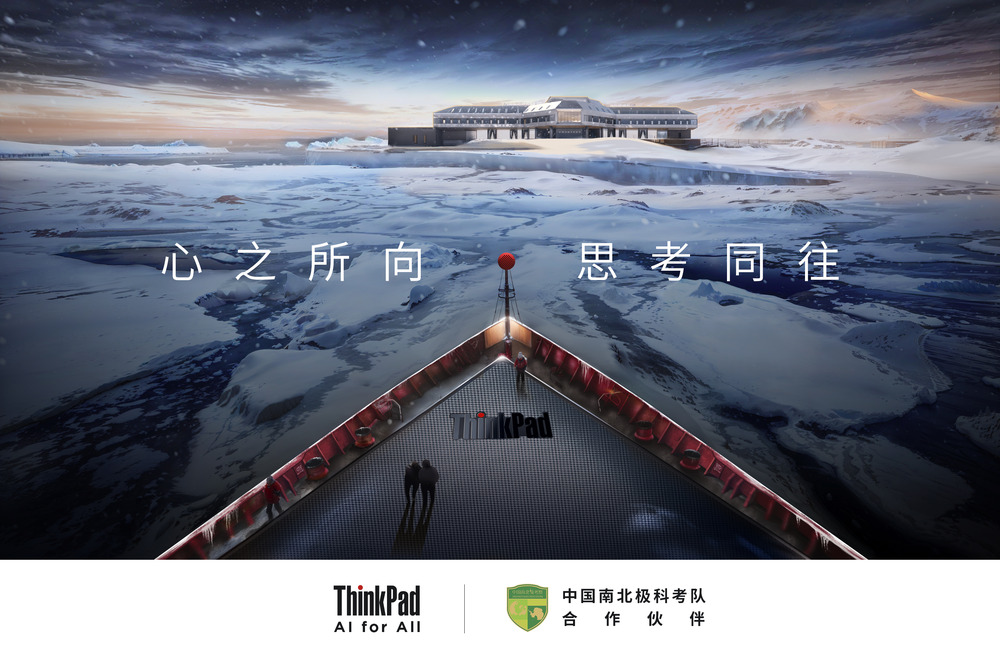Home >Hardware Tutorial >Hardware News >China's fifth Antarctic research station - Qinling Station opens ThinkPad lands in Antarctica to participate in China's scientific expedition
China's fifth Antarctic research station - Qinling Station opens ThinkPad lands in Antarctica to participate in China's scientific expedition
- WBOYWBOYWBOYWBOYWBOYWBOYWBOYWBOYWBOYWBOYWBOYWBOYWBforward
- 2024-02-08 18:33:021312browse
Recently, China’s fifth Antarctic research station, Qinling Station, was officially completed. The Ross Sea, where the Qinling Station is located, is the closest sea area to the South Pole and is an ideal place for polar scientific expeditions. It not only fills the gaps in my country's scientific expeditions in this region, but also provides research for various countries on energy and material exchange in the earth system, marine biological ecology and Global climate change provides important support.

As the official partner of the China Antarctic Scientific Expedition Team, Lenovo ThinkPad landed in the Antarctic aboard the "Snow Dragon 2" polar scientific research icebreaker carrying out the 40th Chinese Antarctic expedition mission. , using industry-leading innovative technology and excellent quality to help the Chinese scientific expedition team build the Qinling Station, providing a strong guarantee for our country to continue to explore the mysteries of nature and bravely climb scientific peaks.

As the Chinese Antarctic scientific expedition team set out to cross the "Roaring" westerly belt, ThinkPad accompanied Xuelong in facing extremely harsh weather conditions, completing the shockproof and shockproof performance of electronic equipment. The severe test of environmental adaptability and successful arrival at the Antarctic scientific research station demonstrated industry-leading excellence in technical performance and stability. It successfully helped the Chinese scientific expedition team cope with the bumpy challenges during the journey and accurately completed the wind tunnel test. Special tasks such as recording data and simulating geographical graphics along the way. As the first perennial scientific research station established by my country in the new era, the China Antarctic Qinling Station has filled the gap in my country’s research in the Ross Sea region of Antarctica. As the "right-hand assistant" of the Chinese scientific expedition team at Qinling Station, Lenovo ThinkPad will complete comprehensive monitoring of the ecosystem, offshore marine environment, soil environment, geological environment, atmospheric environment, snow and ice environment in the Ross Sea area. The Chinese scientific expedition team members will use Lenovo's high-performance mobile workstation - ThinkPad P1 Hermit to explore the extremely cold places and complete China's new breakthroughs and achievements in the field of Antarctic scientific expeditions. In the future, Lenovo ThinkPad will continue to support China's polar scientific expeditions through innovative artificial intelligence technologies and service solutions, writing a new chapter in the dream of China's scientific expeditions to the Antarctic and Antarctic.
The above is the detailed content of China's fifth Antarctic research station - Qinling Station opens ThinkPad lands in Antarctica to participate in China's scientific expedition. For more information, please follow other related articles on the PHP Chinese website!
Related articles
See more- What is the difference between 5g and 4g
- Is Huawei p50 4g or 5g?
- Apple increases the number of drivers in self-driving car testing, signaling increased program resources
- MSI confirms its participation in the 2023 Berlin Consumer Electronics Show and releases new graphics cards, motherboards, monitors and other products
- 'Zongmu Technology releases 'FlashBot' to realize intelligent charging of new energy vehicles'

